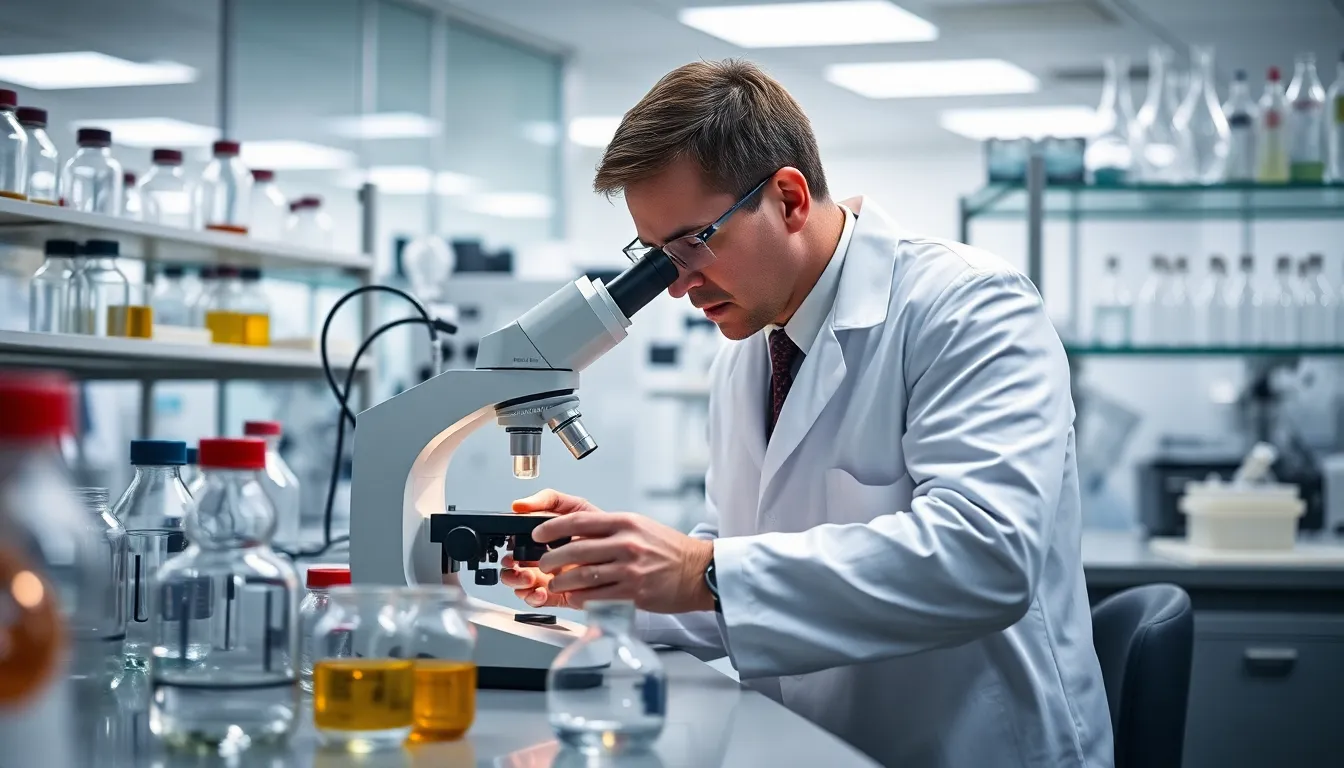Table of Contents
ToggleIn the fast-paced world of biotechnology, product development stands at the forefront of innovation. This dynamic field combines science and technology to create groundbreaking solutions that address critical health and environmental challenges. From pharmaceuticals to agricultural advancements, biotech product development plays a crucial role in shaping the future of medicine and sustainability.
As the demand for effective therapies and sustainable practices grows, understanding the intricacies of biotech product development becomes essential. It involves a multifaceted approach that includes research, regulatory compliance, and market strategies. With the right insights and strategies, companies can navigate the complexities of this industry, bringing life-changing products from the lab to the marketplace.
Overview Of Biotech Product Development
Biotech product development involves a multifaceted process aimed at transforming innovative ideas into viable products. This process includes several key stages: research and discovery, preclinical development, clinical trials, regulatory approval, and commercialization.
- Research and Discovery: This initial stage focuses on identifying potential targets or compounds through various methods such as genetic engineering, microbial processes, and biomanufacturing. Extensive literature review and laboratory experiments inform the feasibility of selected candidates.
- Preclinical Development: This stage evaluates the safety and biological activity of the product in vitro and in vivo. It includes toxicology studies and initial efficacy assessments, which are crucial for determining the product’s potential success in human trials.
- Clinical Trials: Clinical trials occur in three phases. Phase I tests for safety and dosage, Phase II assesses efficacy, and Phase III confirms the product’s effectiveness in a larger population. Participants’ safety and well-being receive paramount attention throughout these phases.
- Regulatory Approval: Regulatory bodies, such as the FDA in the United States, evaluate the evidence from clinical trials. Approval depends on comprehensive data demonstrating the product’s safety and efficacy. Successful navigation through this regulatory landscape is critical for market entry.
- Commercialization: After obtaining regulatory approval, firms launch marketing strategies to promote the product to healthcare providers and consumers. This phase also involves securing intellectual property rights to protect innovations.
Understanding these stages enhances the potential for successful product development in biotech. Companies that remain compliant with regulatory standards while maintaining focus on market needs can effectively position their technologies within this competitive landscape.
Key Stages In Biotech Product Development

Biotech product development encompasses several crucial stages that facilitate innovations in health and environmental solutions. Each stage plays a significant role in ensuring products are safe, effective, and market-ready.
Discovery Phase
The discovery phase focuses on identifying and validating potential therapeutic targets. Researchers employ techniques such as genetic engineering, molecular biology, and high-throughput screening to identify compounds with desirable biological activity. Candidates undergo initial assessments for feasibility and effectiveness. Collaboration with academic institutions and research organizations can enhance innovation during this stage.
Development Phase
The development phase entails converting validated candidates from the discovery phase into viable products. This phase includes preclinical studies that evaluate safety, pharmacodynamics, and pharmacokinetics. After successful preclinical results, clinical trials commence, typically in three phases. Phase I assesses safety in a small group, Phase II evaluates efficacy and side effects in a larger population, while Phase III involves extensive testing to confirm treatment effectiveness across diverse populations. Upon successful completion of clinical trials, preparation for regulatory submission begins.
Regulatory Approval
Regulatory approval is a critical step in biotech product development, necessitating the submission of comprehensive data to agencies like the FDA. Submissions include detailed documentation of clinical trial results, manufacturing processes, and proposed labeling. Meeting regulatory standards ensures the product’s safety and efficacy for consumers. Approval timeframes vary, typically ranging from several months to years, depending on the complexity of the product and the regulatory pathway. Maintaining open communication with regulatory bodies throughout the process can facilitate smoother approval timelines.
Challenges In Biotech Product Development
Biotech product development faces several hurdles that can impede the successful transition from laboratory innovations to market-ready solutions. These challenges include funding acquisition, market access, competition, and the need for constant adaptation to innovations and technologies.
Funding and Investment
Funding serves as a crucial pillar in biotech product development. Securing investment remains a significant challenge due to the high costs associated with research and development. Average expenditures can exceed $2 billion for a new drug, while funding sources vary from venture capital firms to public grants. Investors often require a clear demonstration of potential market demand and regulatory pathways before committing capital. Biotech companies must craft compelling business cases to attract the necessary investment and ensure sustainability throughout the lengthy development process.
Market Access and Competition
Market access poses a unique challenge due to regulatory barriers and the competitive landscape. Gaining approval from regulatory bodies like the FDA often requires extensive documentation and clinical trial data, which can prolong timelines. Additionally, competition within the biotech sector intensifies as new entrants emerge with innovative solutions. Companies need to identify and establish a unique value proposition early on, differentiating their products to capture market share. Strategic partnerships and collaborations can aid in navigating regulatory frameworks and enhance competitiveness.
Innovation and Technology Adaptation
Innovation drives the biotech industry, making technological adaptation essential for success. Rapid advancements in fields like genomics, bioinformatics, and artificial intelligence require constant evolution of developmental strategies. Companies that fail to adopt new technologies risk falling behind. Implementing cutting-edge tools for research and production can improve efficiency and product quality. Staying attuned to technological trends enables firms to leverage innovative methods that may streamline the development process and create competitive advantages.
Future Trends In Biotech Product Development
Innovations in biotech product development are steering toward tailored therapies and sustainable practices. These trends reflect the industry’s response to evolving health needs and environmental concerns.
Personalized Medicine
Personalized medicine is transforming biotech product development by tailoring therapies based on individual genetic profiles. This approach enhances treatment efficacy and minimizes adverse effects. Advances in genomics and biomarker research enable precise targeting of diseases, particularly in oncology and rare diseases. Companies are increasingly utilizing machine learning algorithms to analyze vast datasets, identifying optimal treatment pathways. As a result, clinical trial designs shift toward adaptive methodologies, promoting faster approvals and better patient outcomes.
Sustainability and Environmental Impact
Sustainability plays a pivotal role in future biotech product development strategies. Biotech firms are exploring biomanufacturing processes that reduce waste and energy consumption. Innovations in synthetic biology are contributing to the development of biodegradable materials and eco-friendly production methods. Regulatory bodies are emphasizing environmental considerations, leading companies to incorporate life cycle analysis in product design. By prioritizing sustainable practices, biotech firms can align with market expectations and regulatory demands while addressing global environmental challenges.
Biotech product development stands at the forefront of innovation addressing critical health and environmental challenges. As the landscape evolves companies must remain agile and informed to navigate the complexities of research regulatory requirements and market dynamics. Embracing advancements in personalized medicine and sustainable practices will be vital for staying competitive.
Investing in robust strategies and fostering collaboration across disciplines can significantly enhance the potential for successful product launches. With the right approach biotech firms can transform groundbreaking discoveries into impactful solutions that benefit society and drive future growth.




